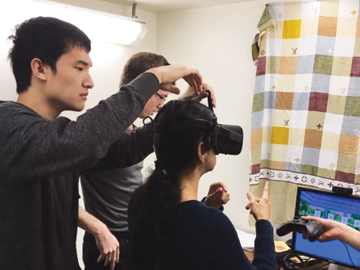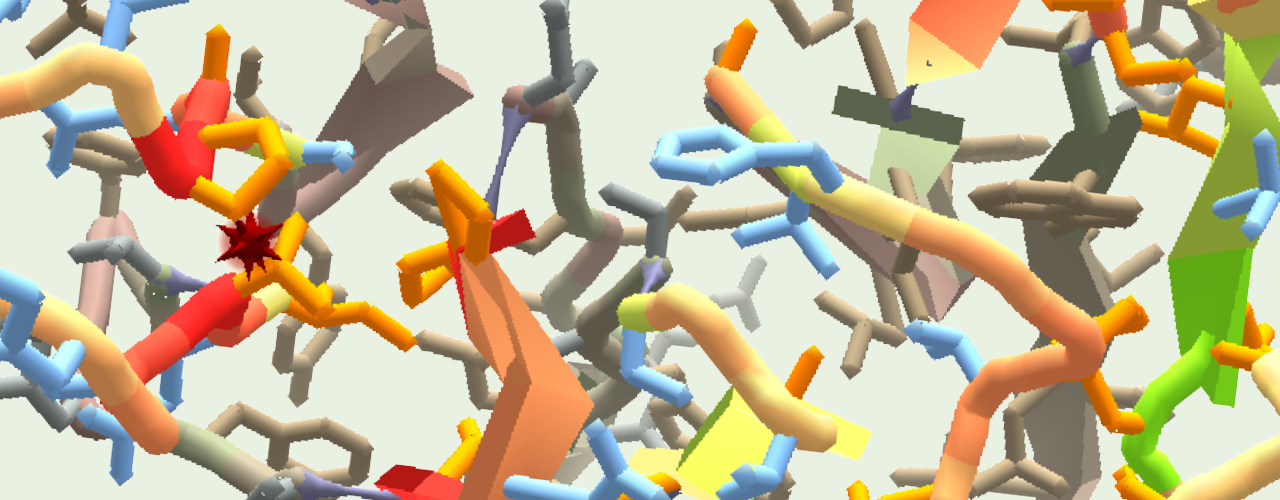
Can crowdsourced puzzles help beat a deadly crop poison?
UC Davis, Mars, Inc. and partners launched a crowdsourcing initiative last year to solve the problem of aflatoxin contamination of crops, a major global food problem linked to permanent or deadly health conditions in both children and adults.
A series of aflatoxin puzzles have been posted online on Foldit, a platform that allows gamers to explore how amino acids are folded together to create proteins. The puzzles provide gamers with a starting enzyme that has the potential to degrade aflatoxin. Gamers from around the world then battle it out to redesign and improve the enzyme so that it can neutralize aflatoxin.
Successful candidates from the computer game are tested in the laboratory of Justin Siegel, Ph.D., assistant professor of chemistry, biochemistry and molecular medicine at UC Davis.
“No single organization can tackle a problem this large on its own,” said Siegel, who is also faculty director of the Innovation Institute for Food and Health at UC Davis. “But we believe the uncommon collaboration here will enable us to not only discover a potential solution, but also translate it in a way that has real impact.”
Aflatoxin was first discovered in 1960 and is estimated to contaminate approximately a quarter of the world’s food crops, including approximately 16 billion tons of corn each year. No current strategies to prevent infestation have been successful.
The substance has been linked to stunting in children who consume it, and is estimated to cause 90,000 cases of liver cancer each year. It disproportionately affects people in poorer countries with less rigorous crop testing.

Can gaming apps improve depression symptoms?

Video games and “brain training” apps are increasingly touted as an effective treatment for depression.
Last year a UC Davis study carried it a step further, though, finding that when the video game users were messaged reminders, they played the game more often — and in some cases for longer periods.
Portraying depression as something caused by biological factors, and providing a video game-based app for brain training, made participants feel that they could do something to control their depression, graduate student Subuhi Khan and communications professor Jorge Peña, Ph.D., reported last summer in the journal Computers in Human Behavior.
That supports other research showing that brain-training games have the potential to induce cognitive changes, the authors said.
The study texted six three-minute games on an app designed by the researchers, with each an adaptation of neurophysiological training tasks shown to improve cognitive control in depressed individuals. The reminder messages and games targeted depression that could be perceived as either internal — caused by a chemical imbalance or hereditary factor — or caused by outside factors such as a job or relationship status.
The team is planning more experiments to test a redesigned version of the app, by itself and paired with persuasive messages. They’re also working on a virtual reality version. The ultimate goal is to disseminate the app and implement large-scale clinical trials.
“Lack of access and high attrition can both be drawbacks of traditional therapies for mental disorders,” Peña said. “Digital interventions can help with access, and they can help address the attention issue by being tailored to an individual patient’s needs.”

Can we predict who will benefit from a digital therapy?
UC Davis MIND Institute researcher Julie Schweitzer and several institute collaborators are analyzing data from a project that seeks to predict which persons with autism spectrum disorder will respond to Cogmed, a game-based cognitive training that can be operated on tablets or home computers.
“Parents are frequently looking for nonpharmacological approaches, and particularly for young children,” Schweitzer said. “They’re concerned about side effects.”
Cognitive processes targeted by the training program, such as attention and working memory, are highly predictive of one’s ability to learn, follow rules and perform academically. Researchers are exploring the feasibility and effectiveness of the intervention for children with autism who have intellectual disabilities, as well as satisfaction levels.
The $154,000 federally funded effort will also examine whether kids with fragile X syndrome respond differently than those with idiopathic autism. Co-investigators include David Hessl, Songpoom Benyakorn, Marjorie Solomon, Ana-Maria Iosif, Andrea Schneider, and Peter Mundy, all of UC Davis.


